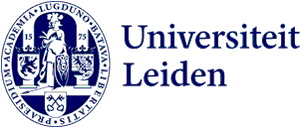
NIAS grant for Robert Stein: Where do receipts come from?
Nowadays they can cause the fall of ministers, but once upon a time receipts were a new phenomenon. Associate Professor Robert Stein is to receive a grant from NIAS to map their origins.
‘I’ve always been interested in receipts, mainly because I’m a bit careless myself,’ says Stein. ‘We all hate the administration we have to do, but we can’t live without it either. I really enjoy finding out where it comes from.’
From good faith to a country full of civil servants
So he delved into administration in the late Middle Ages. ‘In earlier periods, administration usually took place on the basis of good faith, but around 1300, in the court of the king of France, it became customary to record financial matters in writing. The income and expenditure of all kinds of officials were now systematically recorded in accounts and checked against receipts. This innovation subsequently spread to the Netherlands through descendants of the French king.’
Stein used archive documents to reconstruct exactly how this change took place. ‘At first in the Netherlands, these accounts and receipts were felt to be something that applied only to royalty , but at some point cities adopted the system, and it trickled down to the rest of society,’ he explains. Within three centuries, the innovation permeated the whole of the Netherlands.
Focus
Stein received help for his research from students who, helped him ploughed through ‘kilometres of folios’. ‘It’s very inspiring to work with students on something like this,’ he says. ‘In this research, a lot comes from past lectures, but at the same time teaching can be a hindrance. This week I had to spend time entering the grades of my first-year lectures. That does tend to distract you from your research.’
The NIAS grant will allow Stein to focus on the last phase of his research: writing a book about accountability in the late Middle Ages. His teaching activities will be substituted for a year, so that he can spend five days a week writing his book at the NIAS institute in Amsterdam. ‘It’s a wonderful prospect to be able to think about things and write for a year. The scholarship gives me the opportunity to take my time and really delve into things again. I hope and expect to finish my book during this period, also because I feel like starting something new.’
